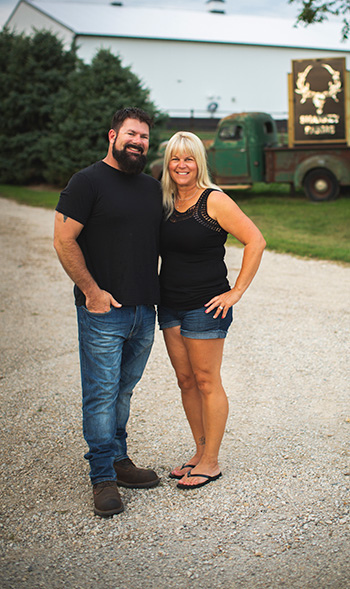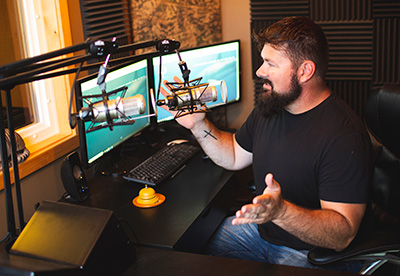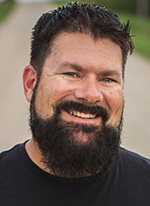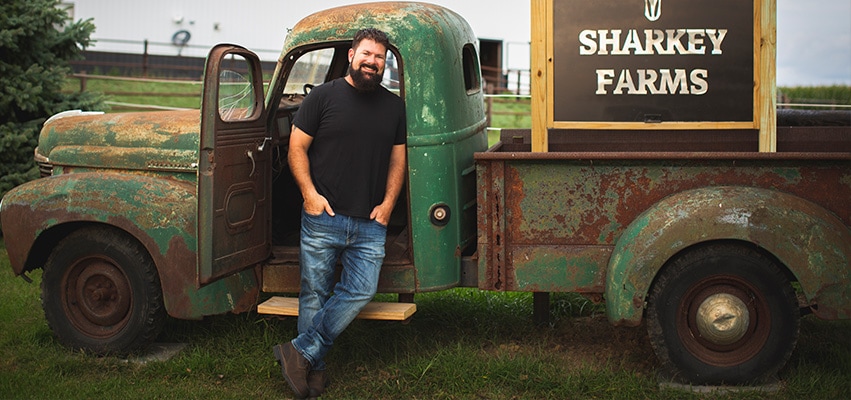I introduce myself as a farmer.
I do this knowing that not many realize what that actually means anymore. Some people view farmers as a whimsical “Ol’ McDonald” type of character, going out every morning to milk a cow and collect some eggs before he grabs a hoe to plant his corn. This image is then challenged as they pass gigantic farm equipment while driving down the interstate.

Others view farmers as monsters who openly want to hurt animals or destroy the environment, as portrayed in biased documentaries or media accounts. This image is then challenged as they meet an actual farmer or take a drive in the country.
Just like in any industry, there are good folks and there are bad folks. So, when I introduce myself as a farmer, I am always curious what people think.
I liken farmers to restaurant owners. With the latter, you have a general knowledge of what they do. You can visit their place and get fed, but two restaurants can be completely different in how they operate. It’s no different in farming.
My farm is pretty normal for central Illinois. I raise corn and soybeans. When my dad retired in 2008, I stopped raising hogs, which gave me a lot more time in the winter. So, like most farmers, I have what is referred to as “off farm income.” For many, that is a part-time job or side hustle that keeps them busy and pays some bills. I know very few farmers for whom farming is their sole source of income.
My wife and I have a side business, SharkFarmer Media. We currently navigate our farming operation while also producing and hosting two national XM radio shows, a weekly television show on RFD-TV, two weekly podcasts, an upcoming Roku show and, of course, “A Shot of Ag” on WTVP PBS.
This is where my vision of what a farmer is has changed. I hang out with farmers similar to myself – basically farm kids who worked their tails off to eventually take over the family farm. We are masters at growing crops that ultimately feed the world. But sometimes, we don’t do a very good job of looking beyond our fence rows.
To date, I have interviewed more than 1,500 people employed in agriculture in some fashion. I started out with a podcast talking to those like myself. As things grew, my wife started scheduling the guests, and she is more open-minded than me. All of a sudden, I was outside my comfort zone.
It started out with first-generation farmers, something of a foreign concept to me. It’s a common belief in my world that you need to be born into ag. Unless someone has copious amounts of cash, it’s just not possible to start from scratch. Or so I thought.
Here’s how things are supposed to work: I grow the crops, then I sell the crops to a middleman. Then I complain about how the middleman is screwing me over. The system is all we know and we live with it.
Except for these new farmers. Apparently, nobody told them how things are supposed to work. They have this crazy notion that they can ask customers what they want and then actually sell it directly to them, eliminating that middleman.
Here’s the rub: In order to do this, the farmer must directly communicate with the customers. This simply can’t happen. I speak “farmerese,” and my customers speak city talk. It is impossible for us to communicate.

So, how are these “newbies” doing it? Well, they have a distinct advantage. They didn’t grow up in agriculture. They know how to address their fears. They’re able to explain how food is grown safely. Not only that, they do it without an attitude. It’s weird.
In farmers’ defense, we go to great lengths to make sure we produce safe food. And since we want to pass the farm on to the next generation, we are very concerned about sustainability. What we aren’t good at is communicating these ideas to anyone outside our bubble.
Here’s another change: The new farmers are using social media to find customers. Since COVID hit, demand for direct-farm products has boomed. Seeing empty grocery store shelves has definitely made people want to be more aware of where their food comes from.
A small-scale, first-generation farmer can get an Instagram account and chronicle the day-to-day challenges of raising a cattle herd. The viewers become invested and want to buy their next hamburger from someone they have grown to trust. Plus, they are willing to pay a premium!
It’s not easy for me to admit that these new farmers have figured things out. But as I’m drinking my coffee and grumbling about these damn kids, it dawns on me that they have succeeded where I have struggled, showing our city friends that the way farmers are portrayed is not always accurate. When people have questions about the herbicide RoundUp or about how animals are treated, they know what to say.
Maybe my wife was onto something in getting these first-generation farmers to interview with us. I don’t like being wrong … but I’m sure it’ll happen someday.

Rob Sharkey, aka “The Shark Farmer,” tills the land at his
fifth-generation farm in the Bradford area, where he lives
with wife Emily. He hosts “A Shot of Ag” on WTVP PBS,
among other media endeavors.




